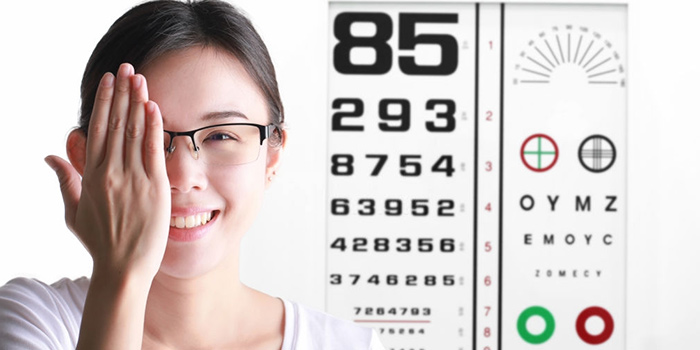
24 Nov 5 Reasons to Have Regular Eye Examinations
Eye examinations, which should be carried out regularly every year, are ignored not only in our country but also around the world. Eye examinations are seen as a burden because the fact that our eyes are two magical doors to our bodies is ignored. But the truth is, acting on misconceptions means more than negligence when it comes to our health and that of our loved ones.
“What is the importance of having regular eye exams?” and “Why are eye exams important for children?” In this blog post I have prepared for you, I will address these questions in 5 separate articles.
- Eye Examinations Contribute to Children’s School Success
Even though we parents risk all the sacrifices when it comes to our children, we sometimes fail to take the right step in the most important issues. Since we do not realize the importance of eye examinations, which are essential for the health of our children, or we cannot spare time for consultation, we may make mistakes that are difficult to compensate for later.
It is known that eye health is a determinant of 80% in children’s learning processes both in the classroom and outside. This statistics, which has been known for a long time, does not fully reflect today’s conditions! All children now share their lives with mobile phones, tablets and computer screens. Thus, their eyes are also damaged much more than in the past. By having an annual routine eye examination, you can contribute to your children’s perception of the world, increase their school success and make sure that they have a healthy vision.
- Myopia Spreads Like a Pandemic
Myopia, with the shortest definition, is a refractive disorder, which is the inability to see long distances clearly. The number of myopic children is increasing rapidly around the world and the age at which this refractive disorder is seen is decreasing. Children diagnosed with myopia in childhood face the risk of continuous progression of myopia and, accordingly, eye diseases such as cataracts, retinal detachment and glaucoma in the following years.
Annual eye examinations are an important step in determining the risk of myopia, early diagnosis of myopia and taking preventive measures. Consideration should be given to the fact that such a simple precaution is sufficient to prevent more serious eye diseases in the coming years.
- Eye Exams Are Not Just Eye Scans
Most of the time, parents think that their children have had eye screenings at schools and there is no problem in their eye health, so they neglect eye examinations and delay routine examinations.
However, eye scans performed in schools only allow simple predictions to be made, such as whether the blackboard in the classroom is seen, whether road signs are noticed, and whether texts can be read. Eye examinations, on the other hand, are a control consisting of much more comprehensive processes, eye diseases that do not show early symptoms can be diagnosed with regular eye examinations and necessary treatment processes can be started.
- Glaucoma is a Big Threat!
Among all eye diseases, I can say that glaucoma, popularly known as “eye pressure”, is an eye problem that is difficult to define. In the early stages of glaucoma, it may not give any symptoms that suggest that precautions should be taken.
People who do not have regular eye examinations realize that they have eye pressure only after they experience vision loss. At this point, it becomes difficult to take control of the disease and prevent permanent vision loss. The importance of eye examinations becomes evident once again, as eye scans have no effect in diagnosing or preventing glaucoma.
- Eye Examinations Raise Awareness About Other Health Problems
People with serious diseases such as high blood pressure, diabetes, high cholesterol and even cancer get the first information about their general health through routine eye examinations. Because our eyes are among our organs where the effects of systemic diseases are first felt.
During a comprehensive eye examination, we can examine the retinal blood vessels, which reflect the health status of the vessels in your body. Since systemic diseases such as diabetes, high blood pressure and cholesterol can cause changes in the blood flow to the retina and the tissue of the retinal blood vessels, we can refer you for further examinations regarding your general health condition.
For this reason, I would like to say once again that especially those who have a risk of disease or chronic diseases should have a routine eye examination.

Sorry, the comment form is closed at this time.